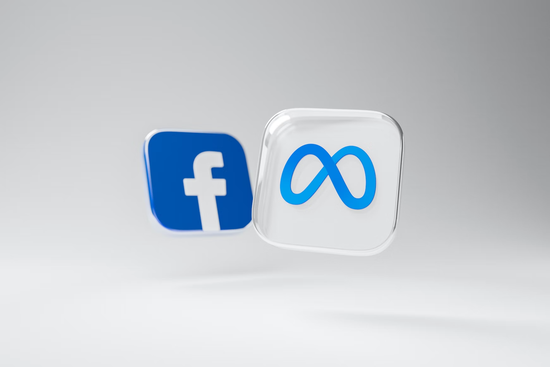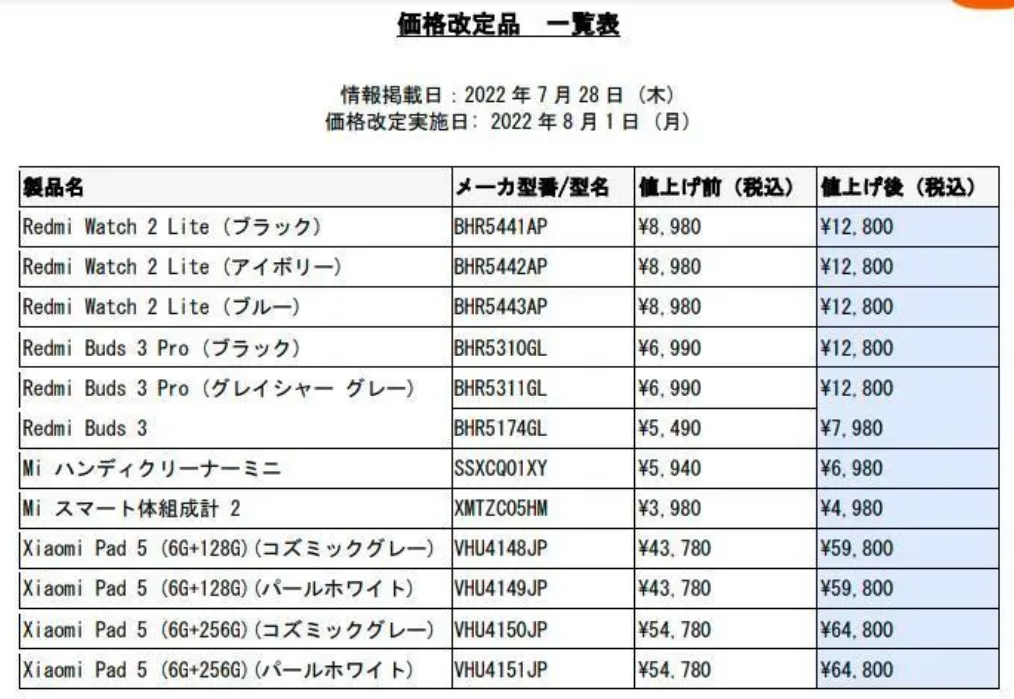your current location is:Home > Finance > depthHomedepth
From poaching to teaming up, Meta suits "soft"
In the early morning of October 12th, Beijing time, Meta held its annual developer conference Connect as scheduled. A year ago, at this conference, Mark Zuckerberg announced that the company changed its name from Facebook to Meta, marking the The company is going all-in on the metaverse.
With the release of the new VR headset QuestPro, Zuckerberg is eyeing companies this time, and expects American companies to be the forerunners of the virtual reality vision.

"As face-to-face work increases, we want everyone to feel like they're there, even when they're not there," Zuckerberg said at the conference. "For virtual reality to truly reach its potential, we need to achieve this The extent to which the 200 million people who buy new PCs every year can do some or all of their jobs better in virtual worlds.”
The application of virtual reality in the office scene, Zuckerberg had imagined as early as a year ago at the conference, but this year is obviously more practical - Microsoft will provide Windows, Office, Teams and other programs.
Meta announced that the QuestPro headset will integrate with Microsoft products that are ubiquitous in the world of work.
Microsoft's Microsoft Teams will be available on Meta Quest, where people can join virtual Teams meetings with a Meta headset, and Meta says Microsoft 365 will also be available there. This means that users can interact with applications such as Word, Excel, PowerPoint, Outlook, SharePoint and other applications in Microsoft 365 through the headset device.
Notably, Windows 365, the cloud-based version of Microsoft's computer operating system, will likely be available on the Quest headset.
Microsoft CEO Satya Nadella also made a surprise appearance and gave a speech, saying: "It's clear that the way we work is changing like never before. Today, every organization is Looking for new ways to reconnect and energize employees at home, in the office, and anywhere in between. That's why we're bringing the Microsoft Teams immersive meeting experience to Meta Quest."

The Quest Pro costs $1,500, almost five times the price of the Quest 2. Rather than letting ordinary consumers spend a lot of money, Zuckerberg seems to want to impress companies first and see it as a high price for employees. (but maybe worth it) investment.
A
In addition to the partnership with Microsoft, QuestPro has a series of product upgrades, including a thinner and lighter design, a more vivid visual display, and the enhanced ability to merge the world with the virtual world.
In Zuckerberg's vision for the future of work, employees will be able to seamlessly travel from their digital workspace to a virtual office, where they can brainstorm and create with colleagues as they would in the real world.
“What if you could collaborate with your colleagues and even if you were far apart, it would be as if you were sitting together?” Zuckerberg asked, “What if you could overlay your work and the people you interact with on top of What about above the physical world? This device will help you live better in the moment, be more productive, and be more like yourself.”

To do that, Zuckerberg said, its equipment must become more advanced. The price of Meta QuestPro is almost 5 times that of Quest2, and the facial expressions of the final wearer can be reflected in the avatar. He also said the technology would provide people in different locations with the ability to observe each other's reactions in real time.
Meta also said that the device could better integrate the real world with virtual spaces. The company says improvements made to the professional device include a "high-definition, full-color mixed reality experience" that allows users to see the outside world in addition to the digital experience.
According to The Washington Post, Moor Insights & Strategy analyst Anshel Sag, who studies the virtual reality business, said corporate users may be willing to pay a premium for high-end virtual reality gear.
Meta is "going all out to take Microsoft because a lot of its competitors don't actually have that capability," Sag said. "They know very well that they have a lot of partners in this productivity space."
The collaboration between Meta and Microsoft is deep, and in addition to the aforementioned office scenarios, Microsoft Intune and Azure will be used in Quest devices for enterprise security, authentication and device management. Jeff Tepper, Microsoft's president of collaborative apps and platforms, also said in a post that he is "exploring ways to bring Xbox cloud gaming to the Meta Quest store."
B
Pulling on Microsoft to meet the needs of enterprise users is a critical step for Meta at the moment. The future of the Metaverse is promised to everyone, but the current Meta needs a lifesaver.
According to the latest data from IDC in July this year, the global VR headset market shipments in the first quarter of 2022 increased by 241% compared with the first quarter of last year, and Meta accounted for 90% of the VR headset market with the Quest2 headset. .

But such a blood transfusion rate is far behind the blood loss rate of Meta. All in the Metaverse, Meta has already burned tens of billions of dollars on this "great vision". It is not an ideal time when the global advertising market is slowing down. .
Meta is facing increasing competition for ad revenue and users from rivals like TikTok and Snapchat. Last year, Apple's new privacy restrictions forced developers to explicitly ask users if their activity could be tracked on the internet, and many "denied app tracking," hitting Meta's approach to targeted advertising hard.
Meta's Reality Labs, which develops VR hardware including the Quest2 and smart glasses Ray-Ban Stories, lost nearly $10.2 billion last year. In July, Meta saw its first quarterly revenue decline. This month, Meta froze hiring, suspending new job postings, hiring and internal transfers to candidates, according to a memo seen by The Washington Post.
If Meta can lead the way in the Metaverse, it won't have to rely on mobile phones to deliver its services to customers. And it wasn't easy, and Meta had to invest in developing a software product to entice people to buy the $1,500 headset.
"The biggest and number one challenge is price, followed by content. They still have a long way to go," said analyst Sag.
Zuckerberg has repeatedly expressed that the company will focus on investing in the metaverse in the next few years. In May, according to Bloomberg, he also told shareholders that Meta's metaverse project will lose "huge losses" in the next three to five years. "funding.

The market seems to have low confidence in Meta, which has lost 60% of its market value in the past year. And within the company, Zuckerberg doesn't seem to have enough understanding and support. Just a few days ago, The New York Times published a report saying that a survey of 1,000 Meta employees found that 42% of employees were unclear about the company's metaverse vision. A previous internal email showed that Meta's Horizon platform has too many vulnerabilities, and even the development team is reluctant to use it too much. Two of the employees also told the media that internally the Metaverse project was nicknamed M·M·H, or Making Mark Happy.
Zuckerberg's ultimate metaverse vision will take years to achieve, and he may not have time to take it slowly. More expensive equipment and enterprise customers seem to be the direction that can take effect immediately.
It's worth noting that Meta still has to face the ups and downs of its competitors.
Take Pico for example. At the end of September, Pico announced the enterprise-level product PICO 4 Enterprise at the conference. Pico has been in the industry market for many years, and its B-end business has reached more than 3,000 customers, covering K12 education, vocational training, medical assistance and other industries.
In 2020, under the impact of the epidemic, more and more employees are working remotely. Financial services company Fidelity Investments uses Pico to expand VR office, training and collaboration. By May of that year, Fidelity had provided Pico's virtual reality headsets to more than 140 employees in its operations.
Analyst Sag said Meta will face competition from Apple, Byte and others, which have been serving enterprise customers for years. To win the competition, Meta will have to offer strategic software capabilities on its devices.
Meta is eyeing enterprise users, and whether the latter will respond enthusiastically as it wishes, it remains to be tested by time. Somewhat embarrassingly, Meta’s stock price fell about 4.5% in midday trading on October 11, which CNBC commented that this highlights the lacklustre investor reaction to the company’s new VR headset.
C
The cooperation between Microsoft and Meta is not as natural as it seems on the surface. The two have been in a competitive relationship for a long time, and the premise of the current cooperation is that Microsoft has previously turned to a "software-led" metaverse strategy.
Just at the opening ceremony of Microsoft Build 2022 in May this year, Microsoft CEO Nadella spent 45 minutes introducing 10 technologies, of which the Metaverse was among them. In fact, Microsoft is a well-deserved pioneer in the field of virtual reality, launching the MR glasses Hololens as early as 2015.
When Meta advanced into the Metaverse with all its strength, it also "poached" several times and snatched away many people from Microsoft. Microsoft's AR team has 1,500 employees. Earlier this year, The Wall Street Journal quoted sources as saying that the Microsoft Hololens team lost about 100 talents in the past year, most of which were poached by Meta.
There are many senior talents, such as Josh Miller (Josh Miller) who worked on the Microsoft Holoslens team and later became the display director of Meta; another senior talent who joined Meta, Rune Jensen, who worked at Microsoft for 18 years, was responsible for Its products include Xbox360, Zune, Xbox One, and Hololens, among others.
In July, Nadella confirmed that Microsoft is shifting from hardware to a software-led metaverse strategy. He emphasized that while Microsoft remains focused on the Metaverse, it will not focus on developing XR hardware to compete with rivals such as Meta and Apple.
Earlier, Microsoft had intended to acquire TikTok and almost formed a more tense competitive relationship with Meta. It was 2020, and TikTok encountered a "banning" crisis in the United States. Trump signed an executive order that TikTok's business in the United States would either be sold or banned, and Microsoft was a potential acquirer and was quite active in the negotiations.

That was a year when TikTok showed its strength in the United States. According to data released by App Annie, a world-renowned mobile application data analysis platform, TikTok surpassed Facebook to become the most downloaded application on iOS and Android platforms in 2020. Average monthly usage time also surpassed Facebook for the first time.
At that time, Wired magazine analyzed that the opportunity to acquire TikTok provided Microsoft with a new consumer growth vehicle, and Microsoft could start to study the synergy between TikTok and Microsoft’s multi-billion-dollar game business. This is definitely not good news for Zuckerberg.
But that turmoil was negotiated and gamed by all parties, and after all, it passed when Trump left office. Byte eventually rejected Microsoft's acquisition offer and reached a partnership with Oracle. According to Reuters, in June this year, TikTok had successfully migrated the data information of its US users to Oracle's servers.
That was also the most "heart-to-heart" moment for Microsoft, in addition to the XR business, with Meta, which owns social applications such as Facebook and Instagram.
Now that two years have passed, Microsoft and TikTok have forgotten each other. Facebook, the parent company of the same name as its own social platform, has also changed its name to Meta. On the battlefield of the Metaverse, Microsoft and Meta chose to go together.
Immediately following the Meta conference, Microsoft 365 head Jeff Tepper posted in a blog post on the official website: "This partnership continues our commitment to Hololens, and we are excited to continue to develop our mixed reality roadmap, guided by a cloud-first approach. , led by Windows and Microsoft 365.”
Next:Zuckerberg continues All in Metaverse: Billions of people scale things won't be built overnight
related articles
Article Comments (0)
- This article has not received comments yet, hurry up and grab the first frame~












